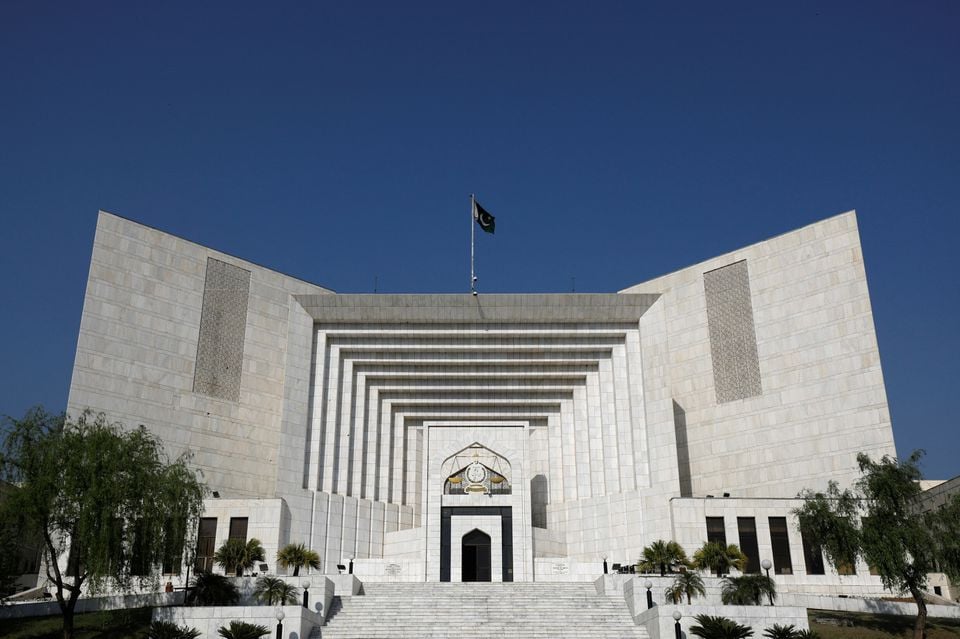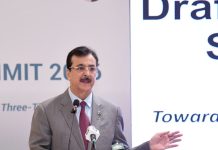By Adnan Rafique
ISLAMABAD: Despite an increase in the number of judges with the elevation of Justice Mussarat Hilali to the Supreme Court, the top court is apparently still caught between a rock and a hard place concerning the one last seat still lying vacant with no consensus over the picks in sight.
The latest appointment — backed by a unanimous approval — breezed through the process without any deadlock that marred the previous ones over ignoring the seniority principle in picking the names of judges for their elevation to the apex court.
The Supreme Court, however, still lacks a consensus-based mechanism to pick a judge for the last seat, a process that can also potentially witness a repeat of the divisive discourse on appointments within the court and legal fraternity in general. During the tenure of the incumbent Chief Justice of Pakistan (CJP), Umar Ata Bandial, a total of five seats remained inordinately vacant as the process regarding the appointment got entangled in the thicket of controversy for the last five years.
Now, with the elevation of Justice Hilali, senior lawyers reckon none of the judges’ camps within the top court have claimed the majority. Meanwhile, as ties between the incumbent CJP and the powerful circles become weak, senior puisne judge Justice Qazi Faez Isa, who has been already notified as the next CJP, is in a position of advantage.
Moreover, it was also learnt that CJP Bandial was seemingly interested to nominate Sindh High Court Chief Justice Ahmed Ali Sheikh as SC judge but the majority of JCP are unwilling to support his elevation as his retirement is near.
Justice Sheikh is working as SHC CJ for last almost six years. It is pertinent to note that the situation came to a head in the Sindh High Court due to the junior judges’ elevation to the SC which led to frustration among senior judges who were overlooked.
It will be interesting to see if the pending matter of the one seat lying vacant would be addressed by the incumbent CJP or if the next CJP, Qazi Faez Isa, will see to it.
Elements of judicial politics cannot be ruled out in the process regarding the appointment of superior courts’ judges as well as the composition of benches in high-profile cases for the last couple of years.
One section of judges is consistently urging CJP Bandial to regulate CJP discretionary powers about the composition of special benches, evolve criteria for the appointments and form a full court to take up high-profile matters.
Hafiz Ahsaan Ahmad Khokhar, who is closely observing the ongoing judicial politics, says that the concept of judicial independence was the third pillar of the state and is embodied in the 1973 Constitution for the provision of safe administration of justice.
However, he noted that concurrently, the confidence, credibility, and trust of litigants and citizens in judicial institutions, especially in the Supreme Court of the country, was much more important, crucial, and vital for a vibrant judicial system.
“What has been going on among the Supreme Court judges for the past several months is unusual, never seen before, and it has not only interfered with the court’s effective functioning but also greatly raised worries among the general public, lawyers, and other stakeholders.”
According to him, having or expressing divergent opinions on constitutional and legal issues by judges while writing judgments, is a healthy legal approach for the judiciary and for the good administration of justice.
However, the ongoing differences in opinions among judges, both on highly internal matters and while sitting on the judicial working side, as has been reported in the media, have resulted in unacceptable criticism and have caused the judiciary to suffer.
“The constitutional expert asserts that this shouldn’t have been done in this manner since it has given the appearance of judicial weakness on the part of the Supreme Court, particularly in the areas of acceptability and judgment execution. He asserted that the role of any superior judiciary should be an exemplary role model in all aspects of any country, serving as a guardian of the constitution, upholding the rule of law, promoting Constitutional supremacy, and providing prompt justice.
However, he regretted that unfortunately, in recent times, the judges’ dissenting opinions, which have emerged through various judgment notes and have been reported in the media were unprecedented and were never seen before.
And as a result, he added, many other sides have attempted to gain an advantage, and even during this current period, laws regarding the very internal working of the Supreme Court have been promulgated — something that never happened or thought of since 1973, as they are contrary to appearances of Article 191 of the Constitution, which was written to preserve the Supreme Court’s internal operations being an independent institution.
“The Supreme Court of Pakistan is composed of a chief justice and as many additional judges as may be determined by an act of parliament, in accordance with Article 176 of the Pakistani Constitution, and there is no legal argument against this legal notion, even though Order XI of the Supreme Court Rules of 1980 mandates that each cause, appeal, or matter be considered and determined by a bench of at least three justices nominated by the Chief Justice.”
“However, it is imperative that the Supreme Court must have an early full court meeting and, following careful consideration for the construction of benches and make criteria for the selection of cases under Article 184(3) of the Constitution as it is a unique application of the power granted by the Constitution with presently no right of appeal under the constitution, and simultaneously it is also very crucial that the opinions expressed orally and in writing by other Supreme Court brother judges be treated seriously as belonging to the body and acting in the institution’s best interests”, he added.





